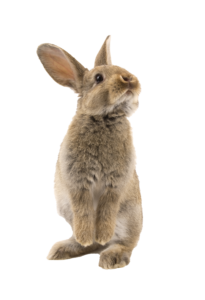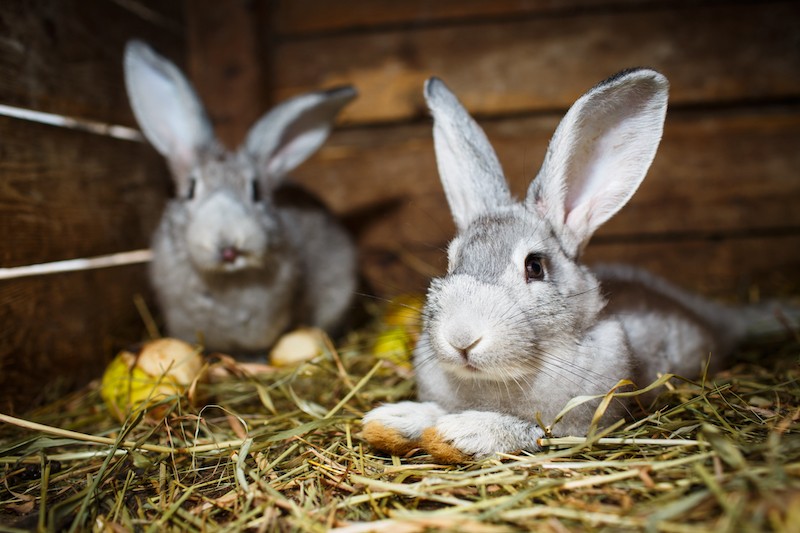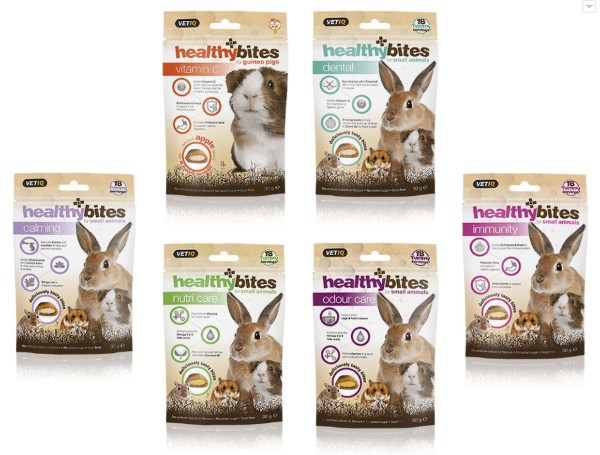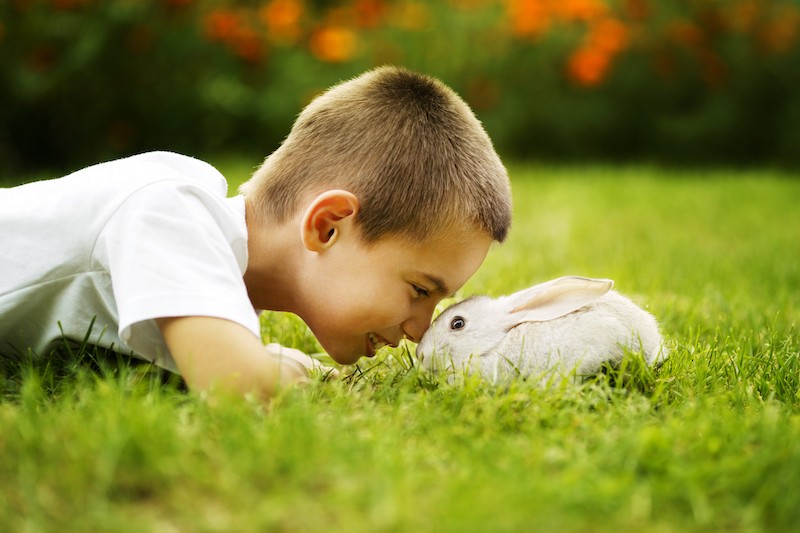As the maxim states – “a puppy is not just for Christmas” – and the same can be said for rabbits. While these adorable creatures make wonderful pets, a high level of commitment is required to ensure they are well looked after and enjoy a happy life as part of your family.
It is therefore hugely important to be aware of the basics when deciding to bring a bunny into the fold. Simple actions such as picking up a rabbit can cause major distress for the animal if not done correctly, so it’s important to learn about a rabbit’s temperament and how to make them feel safe and calm before bringing them home.
Similarly, keeping tabs on your bunny’s health is crucial and initial queries about suitable vaccinations should be made as early as possible.
Once the rabbit is on home soil, there are many ways to make sure they will live their best life in their new abode! Check out these top tips for keeping your rabbit active, healthy and happy all year round.
1. Create a happy hutch
The conditions of a rabbit’s hutch will play a large part in the quality of their life. There should be ample space within the hutch for the bunny to go about their daily lives and the run should be stable and secure.
Ideally, a hutch that is four feet in length and about two feet in both width and height is ideal. In hopping terms, there should be enough room for the rabbit to complete three or four hops. Ensure that the base of the hutch is sturdy to avoid the potential of any unwelcome burrowing predators.
A designated litter tray should be provided in the hutch (which requires some advance bunny potty training) and this should be kept separate from the rabbit’s eating and sleeping area. Both the litter tray and hay should be changed daily and the hutch should ideally be cleaned with a pet-friendly disinfectant once a week.
2. Bunny-proof outdoors and indoors
A rabbit is a playful creature and just as you would babyproof your home and garden for a toddler on the move, the same rule should be applied for your pet rabbit.
Create a safe outdoor environment by blocking any potential escape routes and likewise, ensuring any predator entry points are closed up. Allow your bunny to exercise freely for a few hours a day, in the morning and evening time, giving them adequate space and time to explore and play. A run attached to the hutch will also allow them to stretch their legs at other points during the day.
Browse the brand new healthy bites range for small pets
If your rabbit spends a lot of time indoors, make sure that loose wires are out of reach, along with certain house plants, which may be toxic if ingested. Heights and hard surfaces are also a bad combination for bunnies, so if your rabbit likes to play on the furniture, place padding around the floor beneath in case he or she decides to take a leap of faith!
3. Providing a good diet is crucial for rabbit health
Certain foods are integral for rabbit health, while others are toxic. It’s crucial to be aware of both to ensure your bunny’s diet ticks all the boxes.
Hay and pellets, particularly in the early months of a rabbit’s life, are hugely important for nutrition, while leafy green vegetables should also be a staple in their diet. Create a fun game by hiding pellets in the rabbit’s hay; this will encourage them to play as they search for the treasure while eating it will give them the nutrition they need. There are also certain pet treats on the market, which boost healthy teeth, immunity and more while containing ingredients to promote their overall health.
Clean tap water should be placed in the hutch daily so that your rabbit can stay hydrated. This is particularly important during the summer months, as overheating can be very dangerous for rabbits.
4. Feeding the mind is of equal importance
Intellectual stimulation and playtime are vital to a bunny’s overall well-being. Rabbits are social creatures and depression can be common in those left alone for long periods. Furthermore, too much solitary time can lead a rabbit to over-groom and overeat, which can be detrimental to their physical health.
Interact and bond with your pet by gently grooming their fur with a warm flannel cloth or through active play with toys. This activity ball will encourage your bunny to embrace their playful side and it will be fun for you to watch their reaction when they uncover the hidden treat!
Alternatively, if you are planning on welcoming a rabbit into your home, consider the option of getting a pair. Provided they have successfully bonded, they will be life-long playmates for each other and this companionship will provide years of happiness and contentment.
4. Spay or neuter new bunnies
If you do decide that two is better than one, it is hugely important to have both rabbits spayed or neutered once they are over four months old. It is crucial to do this with every pet rabbit, as it not only calms them but also drastically reduces the risk of urinary tract infections and even cancer.
5. Pay an annual visit to the vet
From continuously growing teeth to the dangers of urine scalding and flystrike, rabbits need to be regularly checked over to ensure they are in good physical condition. While it is important to keep a continuous eye on their outward appearance for any hints that something might be amiss, taking your bunny on an annual trip to the vet for a full once-over will give you peace of mind and could potentially be a life-saving outing for your beloved pet.
Browse the brand new healthy bites range for small pets








